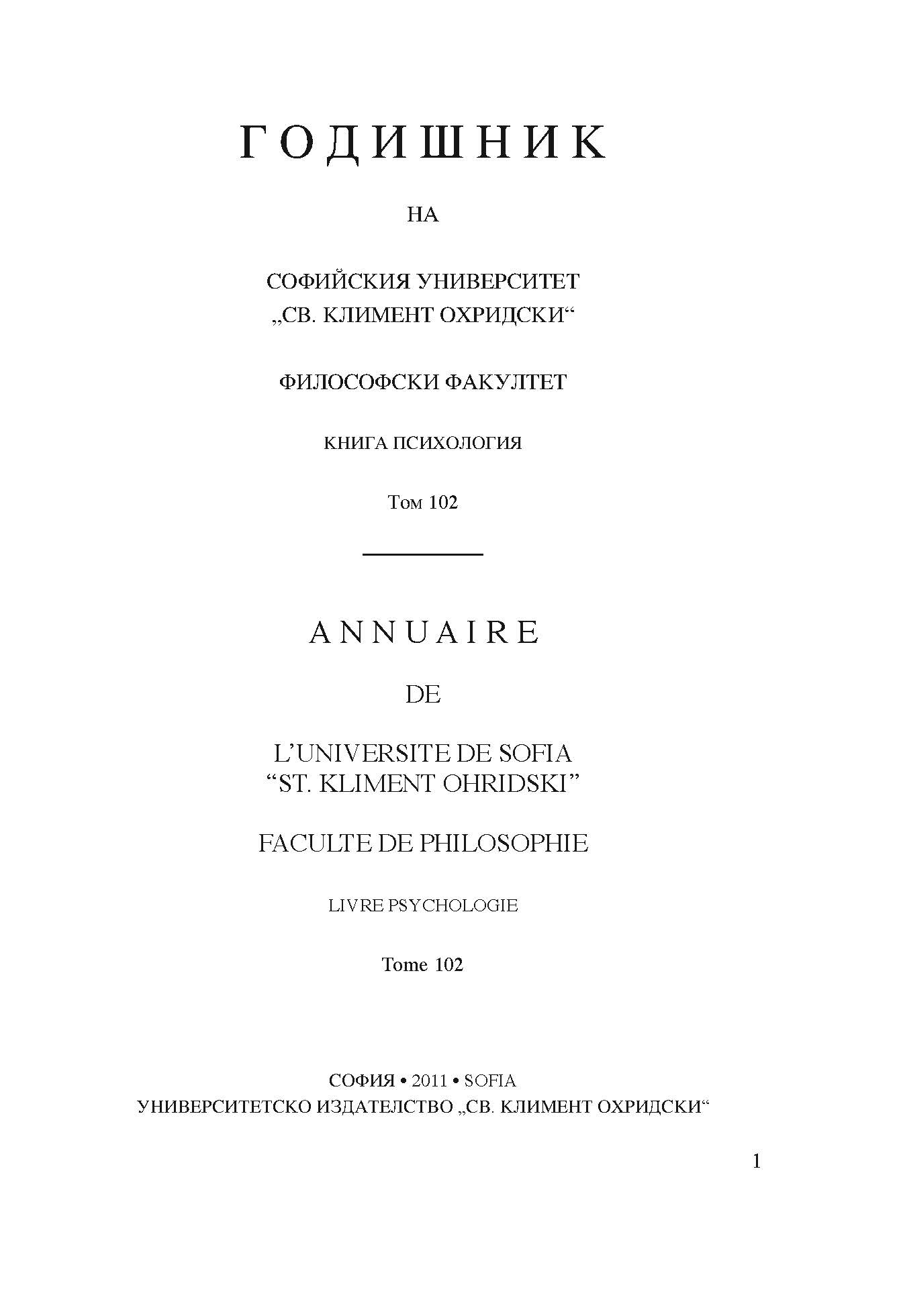Рискови и протективни личностни диспозиции за саморегулация на оздравителния процес при сърдечносъдови заболявания
Risk and protective personal dispositions for self-regulation of the rehabilitation process in cardio-vascular diseases
Author(s): Daniela Todorova-Papantcheva, Haiganush SilgidjianSubject(s): Social Sciences, Psychology, Clinical psychology
Published by: Софийски университет »Св. Климент Охридски«
Keywords: risk; protective personal dispositions; self-regulation; rehabilitation; cardio-vascular diseases
Summary/Abstract: This investigation presents the results from the empirical study of the effects of risk and protective factors in the self-regulation of the rehabilitation process in cardio-vascular diseases. The empirical study has a longitudinal design and has been conducted in the UMPHAT St. Ekaterina, Sofia in two phases – preoperative phase (Study 1) and postoperative phase (Study 2 – retesting). In theoretical terms, the following is presented: 1. the transition from the traditional unidimensional to the necessary multidimensional explanatory models for predicting the cardiovascular pathogenesis; 2. the development of the Self-regulation model of Leventhal for illness representations (SRM Leventhal, 1970; Leventhal, Meyer & Nerenz, 1980; Leventhal et al., 1984; Cameron & Leventhal, 2003) to its contemporary enriched variations in the strength model of self-regulation (Schwarzer, 2008; Hagger, 2009; Sniehotta, 2009) and in the Temporal Self-Regulation Model (Temporal Self-Regulation Theory) (Cameron, 2010; Hall et al. 2010; Salis, 2010). The Type D Personality or the dispositional fixative of the ‘D-istressed’ personality is presented based on the stable positioning of the Negative affectivity and the Social inhibition (Denollet, 1998a, 2000, 2005; Denollet & Van Heck, 2001; Pedersen & Denollet, 2003). The empirical study that has been conducted proves our leading investigative hypothesis: patients, in whom high levels of the studied risk factors were registered – Cardiac depression, Clinical anxiety, Negative affectivity and Social inhibition of the Type D Personality – demonstrate, respectively, lower levels of adaptation in handling heart diseases and adaptation to the necessary interventions. For the purposes of the study, a primary adaptation of the specialized for the cardio-vascular diseases psychological questionnaires and scales was conducted – Type D personality – Scale 14 (DS 14, 2004) of Denollet et al., Cardiac Depression Scale (CDS, 1993) of Hare et al. and Short Illness Perception Questionnaire (BIPQ) of Broadbent et al., 2006.
Journal: Годишник на Софийски университет „Св. Климент Охридски“. Философски факултет. Психология
- Issue Year: 102/2011
- Issue No: 1
- Page Range: 163-203
- Page Count: 41
- Language: Bulgarian

